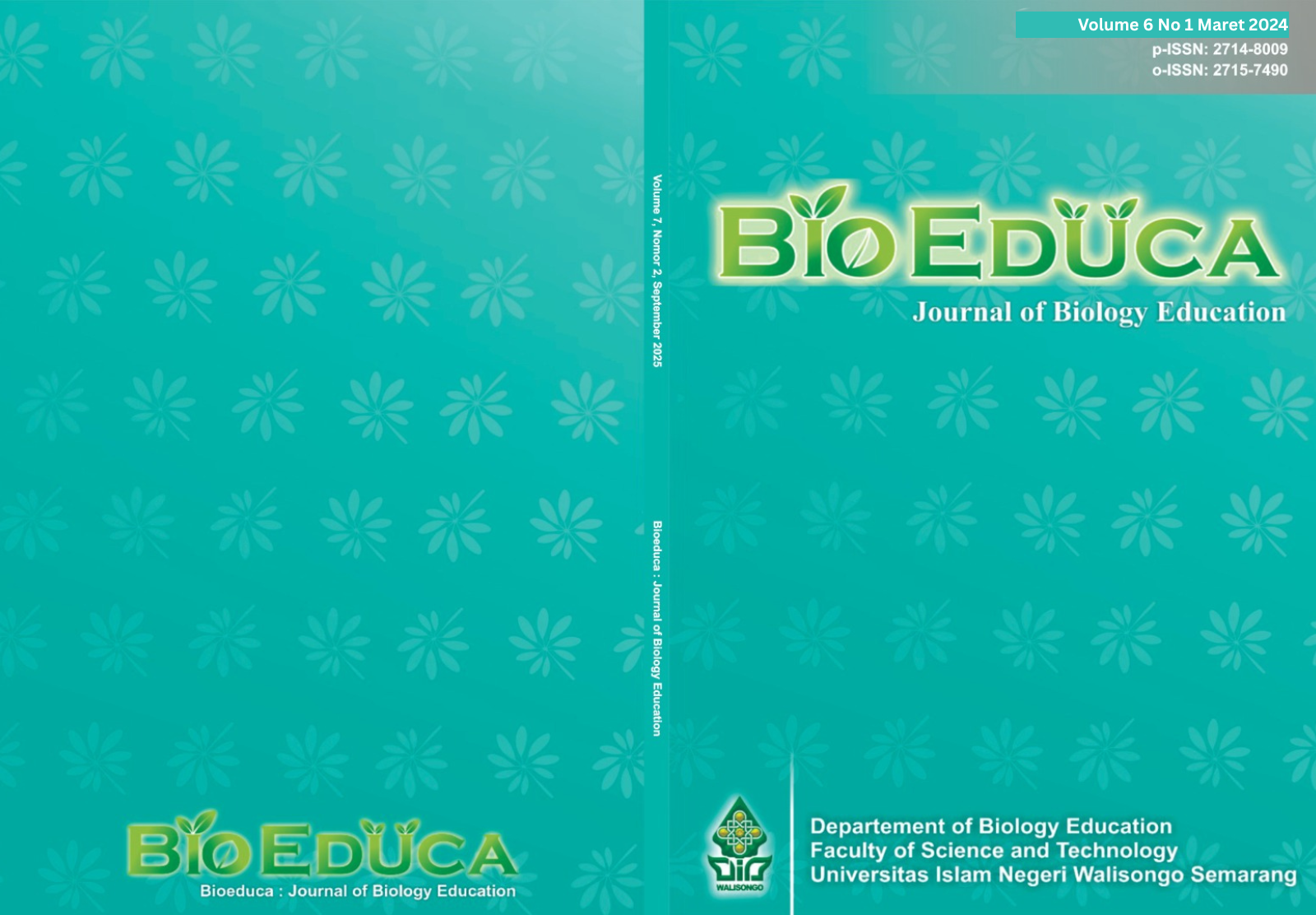Development of Comic Strip Learning Media on Human Reproductive System Material in Class XI MA Madani Alauddin Pao-Pao
Main Article Content
Abstract
Downloads
Article Details
The copyright of the received article shall be assigned to the journal as the publisher of the journal. The intended copyright includes the right to publish the article in various forms (including reprints). The journal maintains the publishing rights to the published articles. Authors are allowed to use their articles for any legal purposes deemed necessary without written permission from the journal with an acknowledgment of initial publication to this journal.

This work is licensed under a Creative Commons Attribution-ShareAlike 4.0 International License.
References
Branch, Robert Maribe. (2009). Instructional Design : The ADDIE Approach. USA : Springer.
Hadinata, budiana, pradana. Bunga Rampai : Artikel Kolaborasi Dosen dan Mahasiswa. Malang : Media Nusa Creative. 2021.
Hartanto, Suryo. (2020). Mobalean Maning (Model Pembelajaran Berbasis Lean Manufacturing). Yogyakarta: Deepublish.
Haviz, Muhammad. (2013). Research andk Development: Penelitian di Bidang Kependidikan yang Inovatif, Produktif dan Bermakna, Jurnal Ta’dib 16(1), 28-43.
Hadi, S. Pembelajaran Konsep Pecahan Menggunakan Media Komik Dengan Strategi Bermain Peran Pada Siswa SD Kelas IV Semen Gresik. Malang.On line at puslitjaknov.org/data/file/2008/makalah_peserta/57_Syaiful%20Hadi.pdf[accessed 29 April 2009].
Handayani NN. (2005). Efektivitas Media Komik Strip Pada Pembelajaran Kimia Interaktif terhadap hasil belajar siswa kelas II materi pokok Termokimia di SMU N 3 Pekalongan Tahun Ajaran (skripsi). Semarang: FMIPA UNNES.
Mumpuni, Atikah dan Rizki Umi Nurbaeti. (2019). Analisa Faktor yang Mempengaruhi Minat Baca Mahasiswa PGSD, DWIJAYA CENDEKIA. Jurnal Riset Pedagogik, 3(2), 123-132.
Nurkholis. (2013). Pendidikan Dalam Upaya Memajukan Teknologi. Jurnal Kependidikan 1(1): h. 25-44.
Sanusi, Uci dan Rudi Ahmad Suryadi. 2018. Ilmu Pendidikan Islam. Sleman: CV Budi Utama.
Sari, Eka Puspita dkk. (2018). Pengembangan Media Berbentuk Komik Strip Sebagai Penunjang Pembelajaran Fisika SMA Kelas X”. Indonesian Journal of Science and Mathematics Education 01(1): h. 77.
Sinta Dameria Simanjuntak. (2019).Pengembangan Pembelajaran Matematika Realistik dengan Menggunakan Konteks Budaya Batak Toba. Jakarta : Jakad Media Publishing.
Rohani, Ahmad. (2014). Media Instruksional Edukatif. Jakarta: Rineka Cipta.
Rusliana. (2022). Mudahnya menulis ilmiah panduan praktis. Jakarta: kencana.
Triani, Ratnawati. 2016 Pemanfaatan Komik Strip Sebagai Media Pembelajaran Mahasiswa Pendidikan Ekonomi Metro. Jurnal Promosi 4(2): h. 9.
Widoyoko, Eko Putro S. (2017). Evaluasi Program Pembelajaran Panduan Praktis Bagi Pendidik Dan Calon Pendidik. Yogyakarta: Pusaka Pelajar: h. 39.

